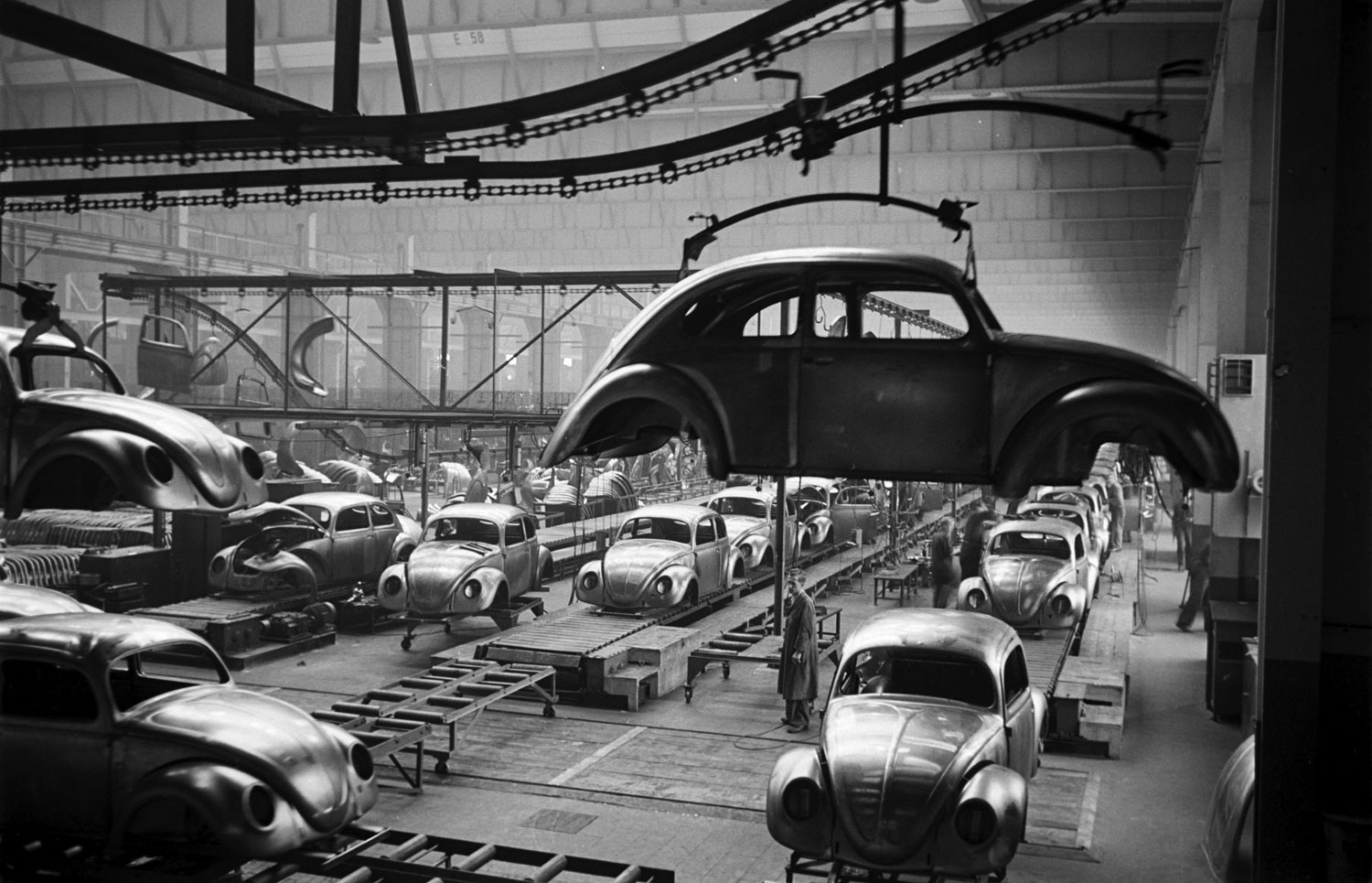
Most people who have ever owned a Volkswagen Beetle or, say, an early, split-windshield VW bus or even a Karmann Ghia will swear that those uncomfortable, relatively bare-bones vehicles were among the favorite cars they’ve ever driven. They’re not for everyone, of course — but for a certain breed of driver, the old-school VWs offered a rare combination of economy, ease of maintenance (this writer, stranded far from any garage, once repaired a busted accelerator cable on a ’67 bug with 12-pound-test fishing line) and, most importantly, personality that so many other mass-produced automobiles lacked.
The story of Volkswagen, meanwhile, is among the most fascinating and, in some regards, most troubling of any car manufacturer in existence. One well-documented example of VW’s paradoxical history: in its early days, during World War II, Volkswagen used slave labor (the company has admitted as much) to build vehicles for the Nazi war effort; decades later, the archetypal Volkswagens, the Beetle and the T1 bus, would become the four-wheeled symbols of the “peace and love” movement of the 1960s. From Hitler to hippies: not many other companies, automobile or otherwise, can lay claim to that sort of stranger-than-fiction corporate narrative.
Here, on the anniversary of the founding of Volkswagen on May 28, 1937, LIFE.com offers a series of photos made by Walter Sanders at the company’s famous Wolfsburg plant in 1951. A refugee from Hitler’s Germany himself, who fled his native country the same year VW began making cars, Sanders captures in these pictures of the factory and the factory workers a nation in the process of recreating itself. Here, in black and white, is a portrait of the labor and mechanization that would again make Germany (well, West Germany, anyway) one of the world’s most powerful economies before the end of the century.
[MORE: See all of TIME.com’s coverage of Germany.]
Liz Ronk, who edited this gallery, is the Photo Editor for LIFE.com. Follow her on Twitter @lizabethronk.
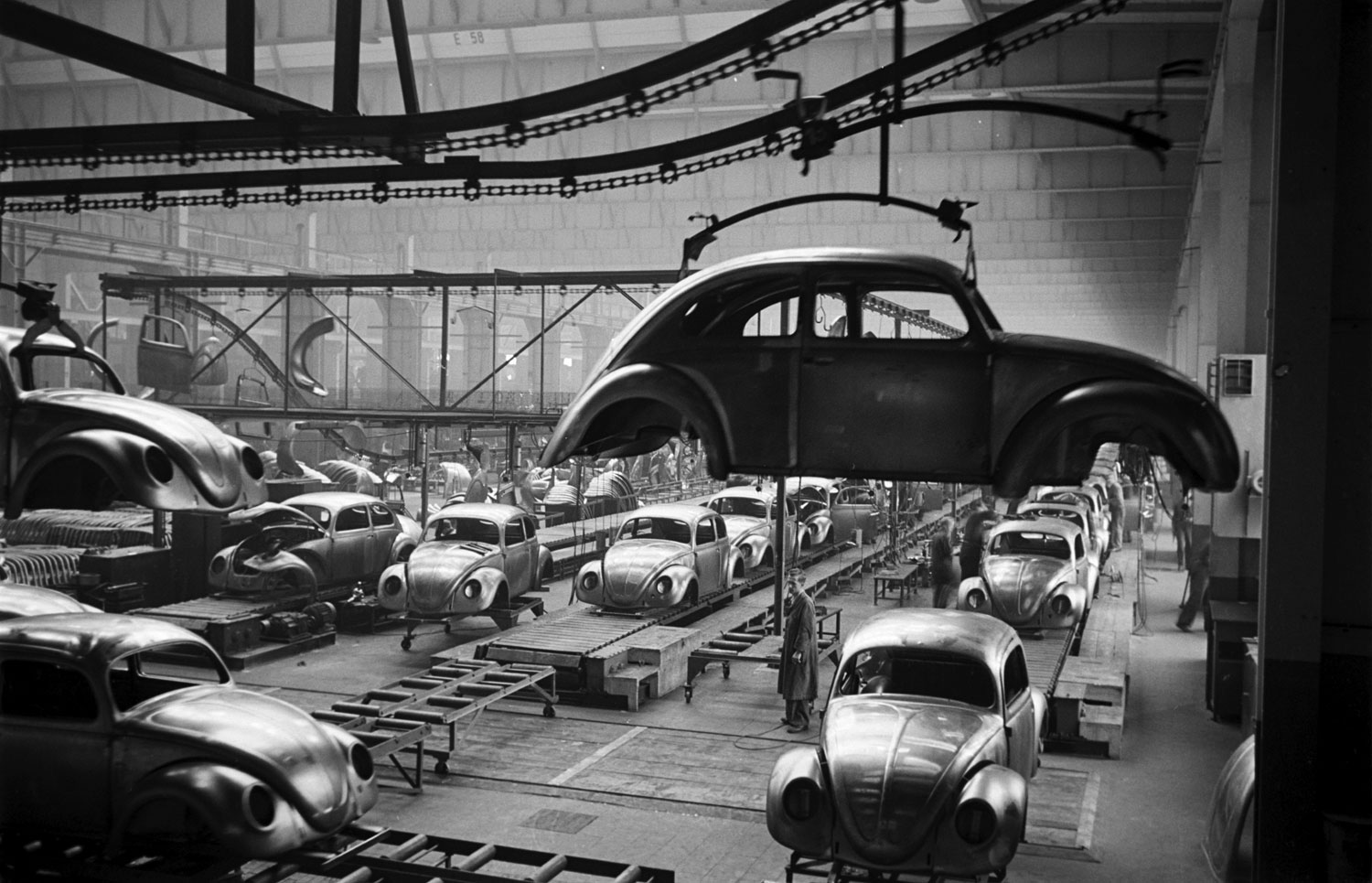
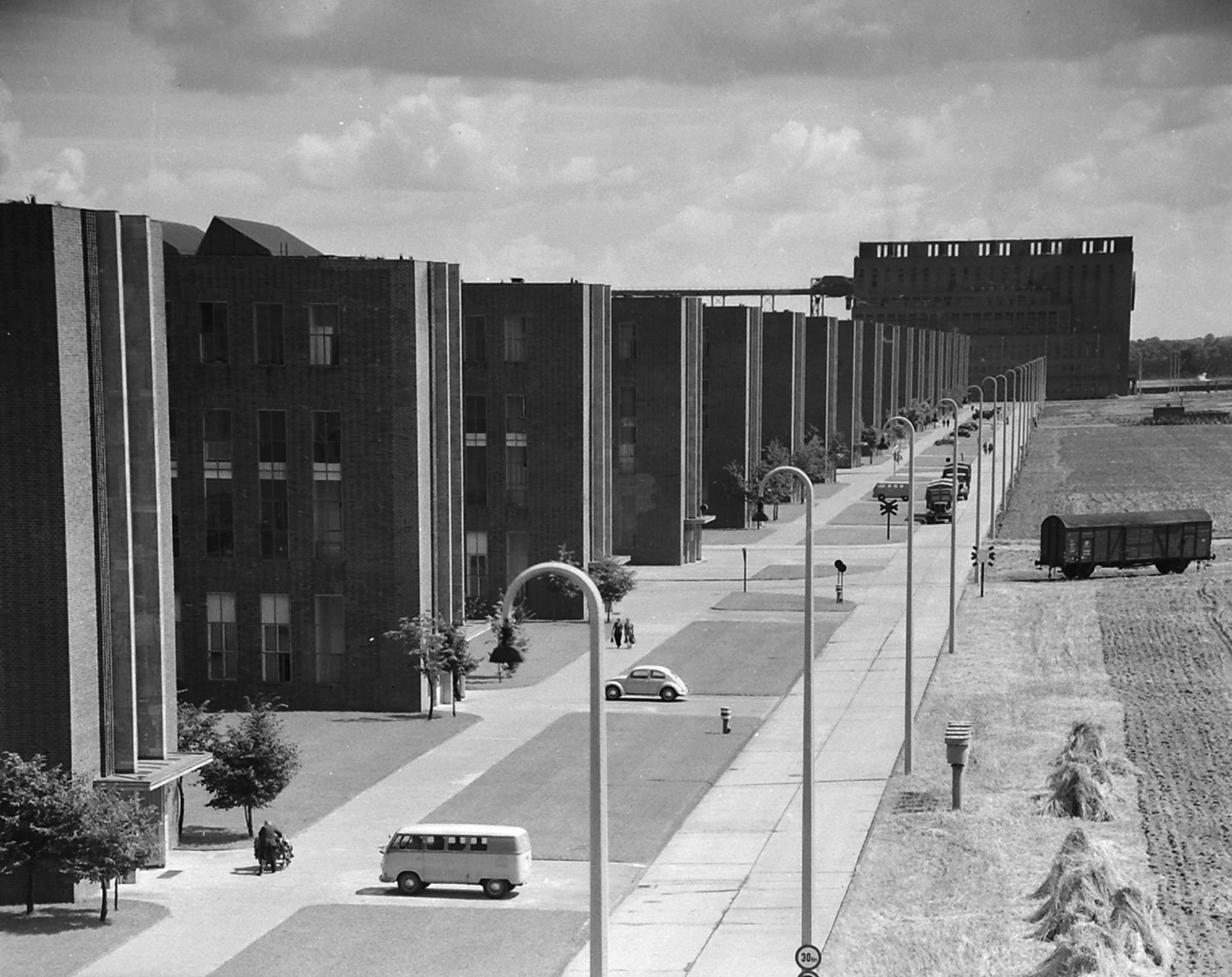
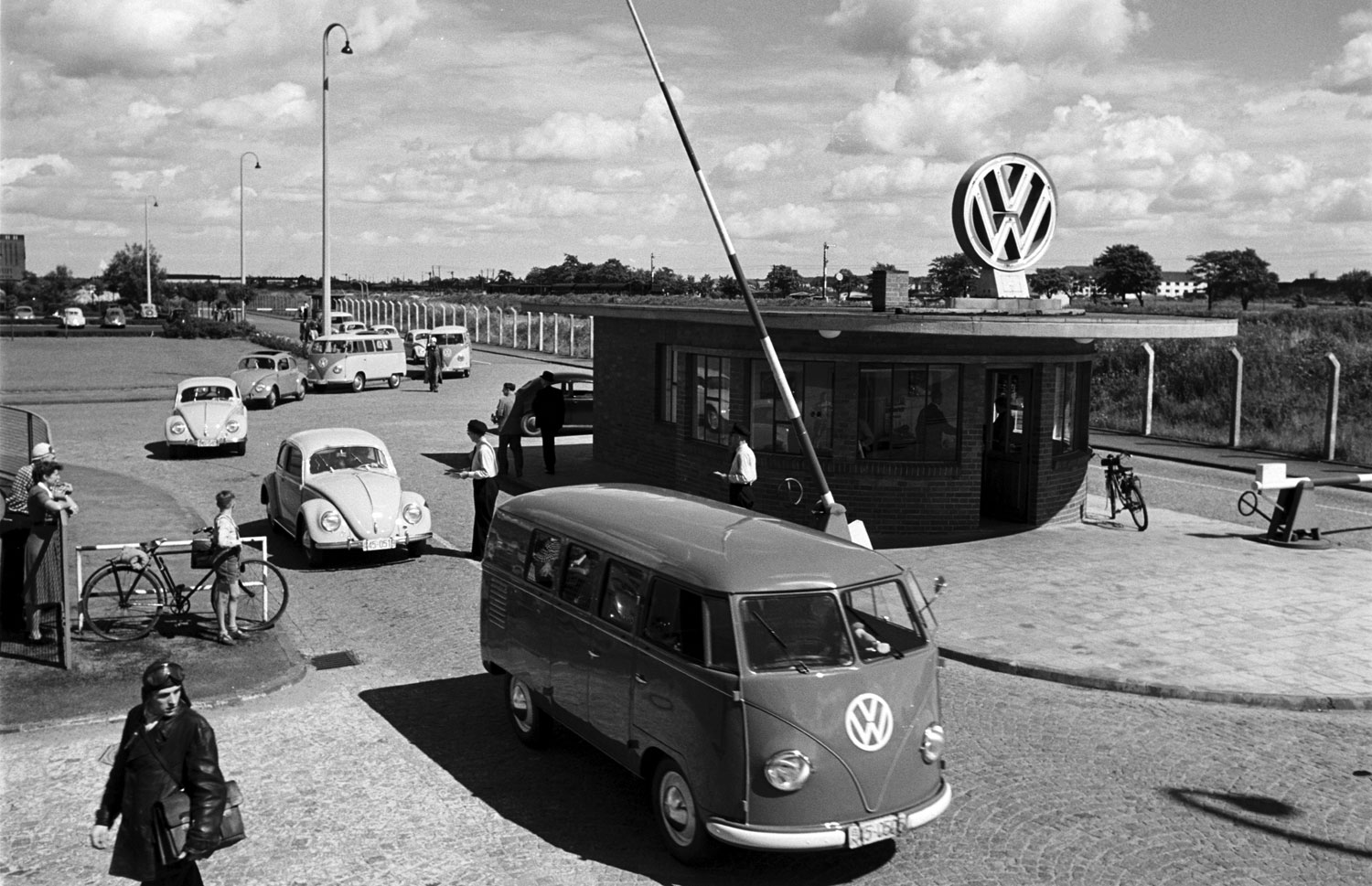
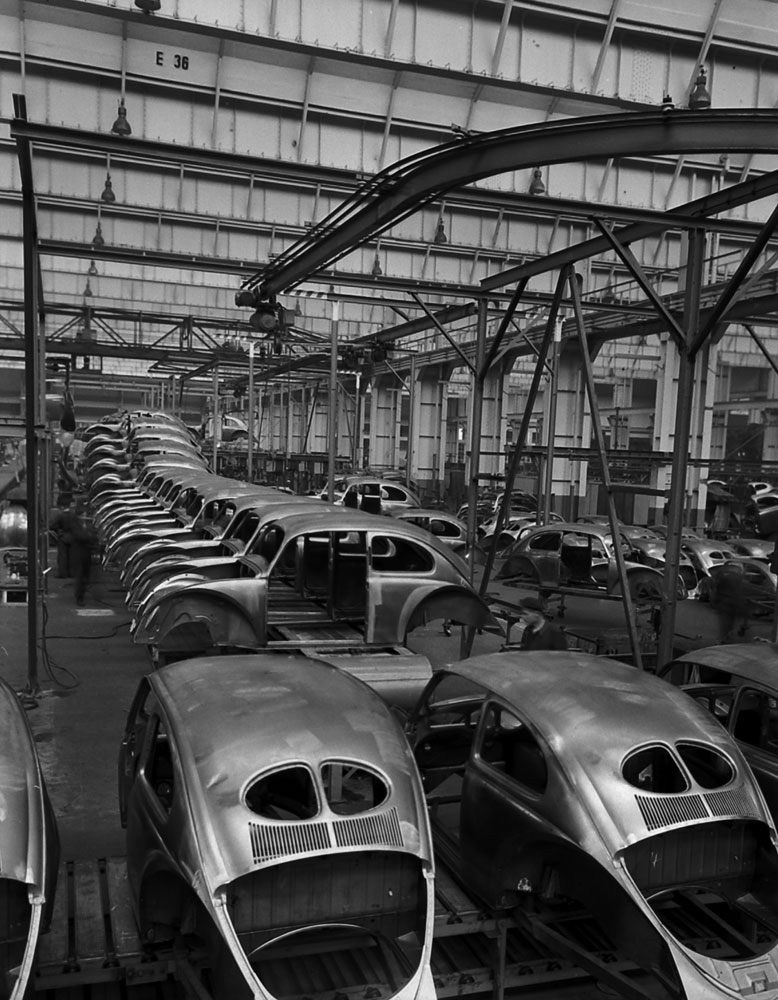
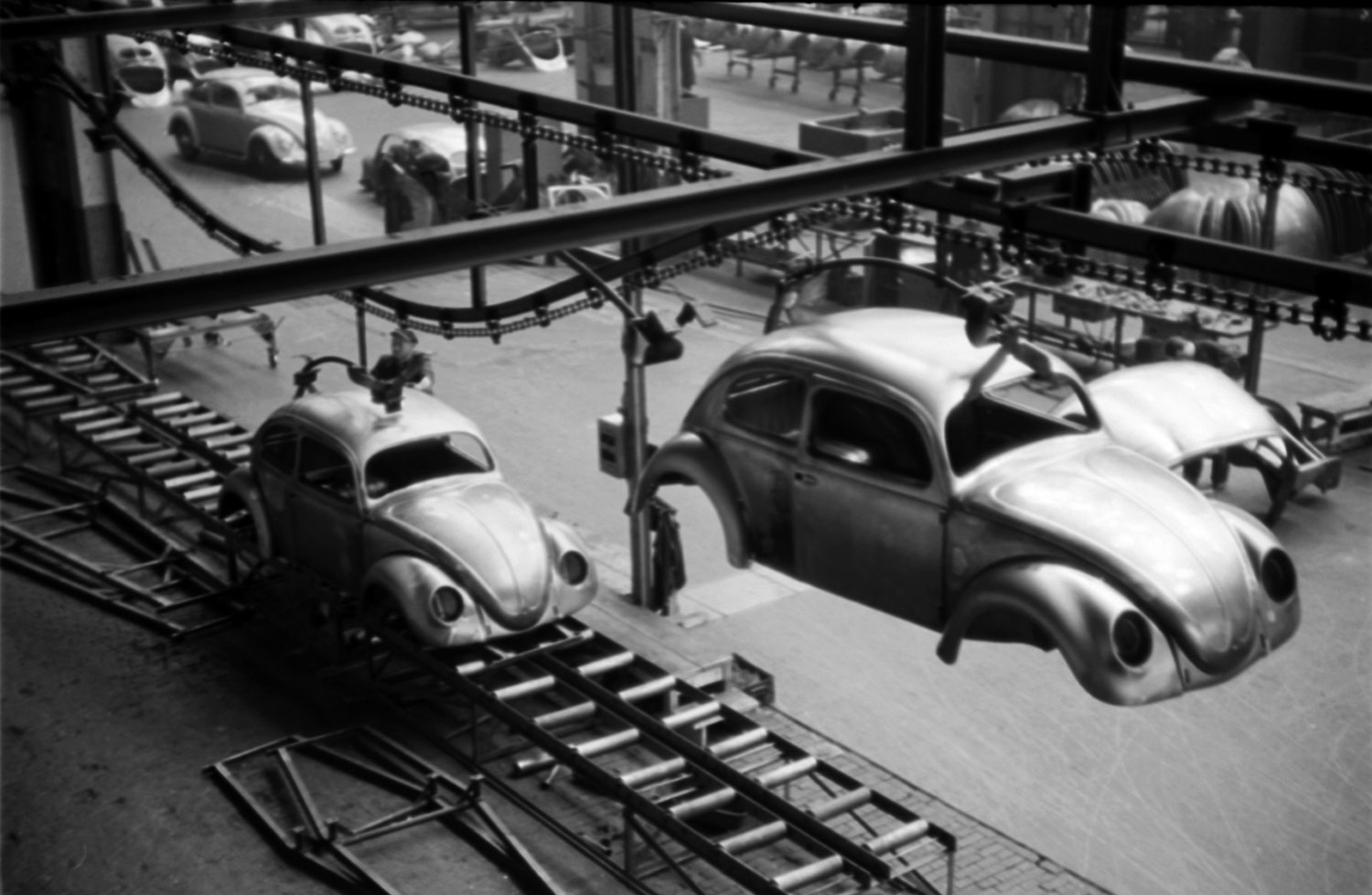
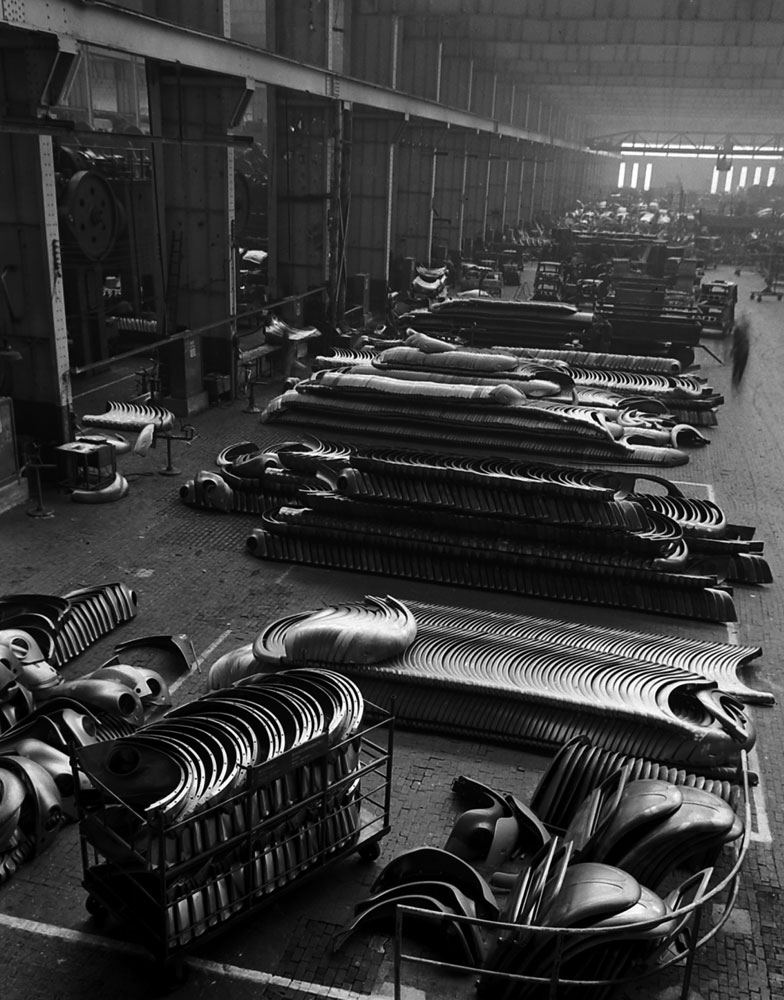
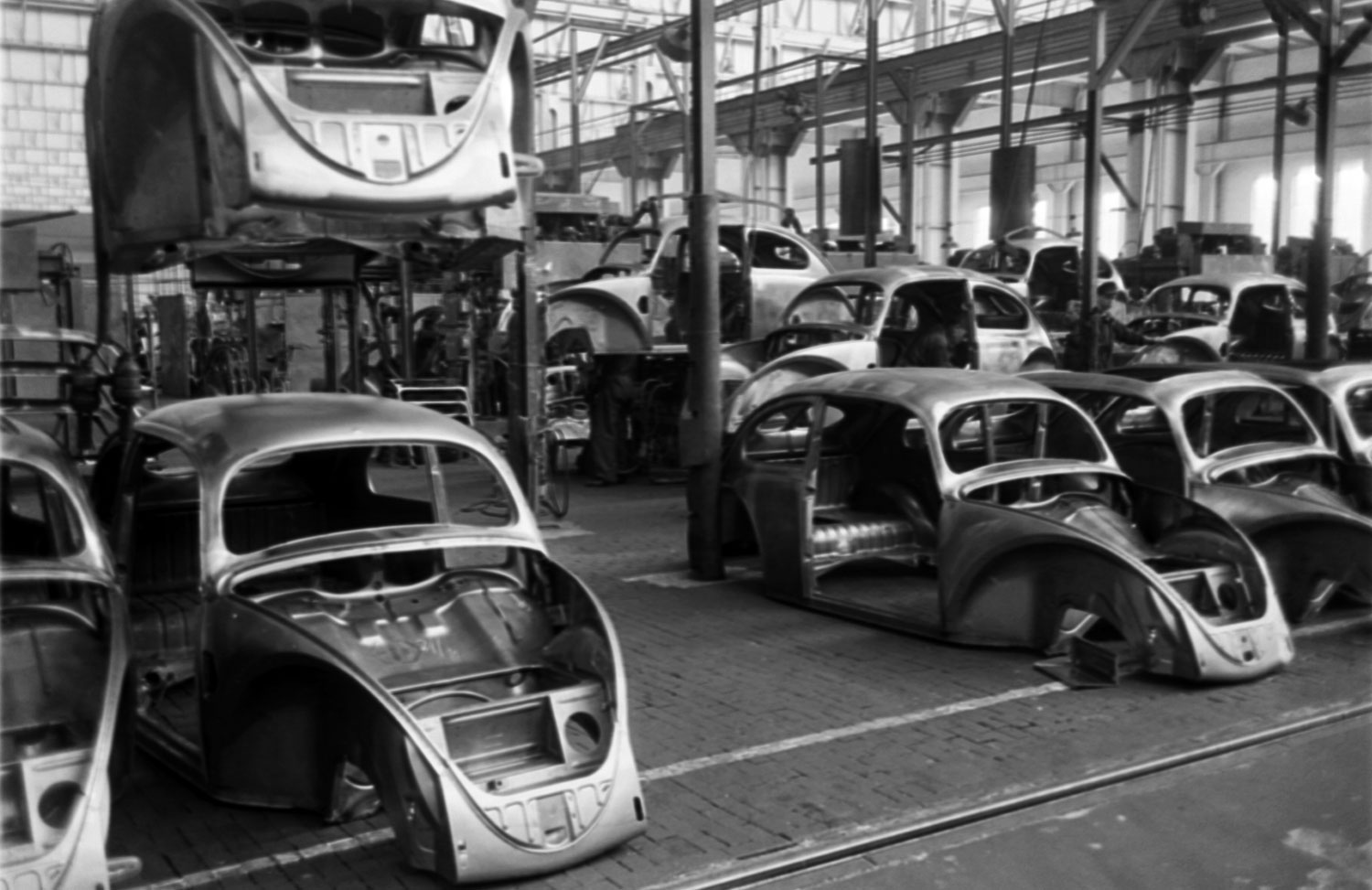
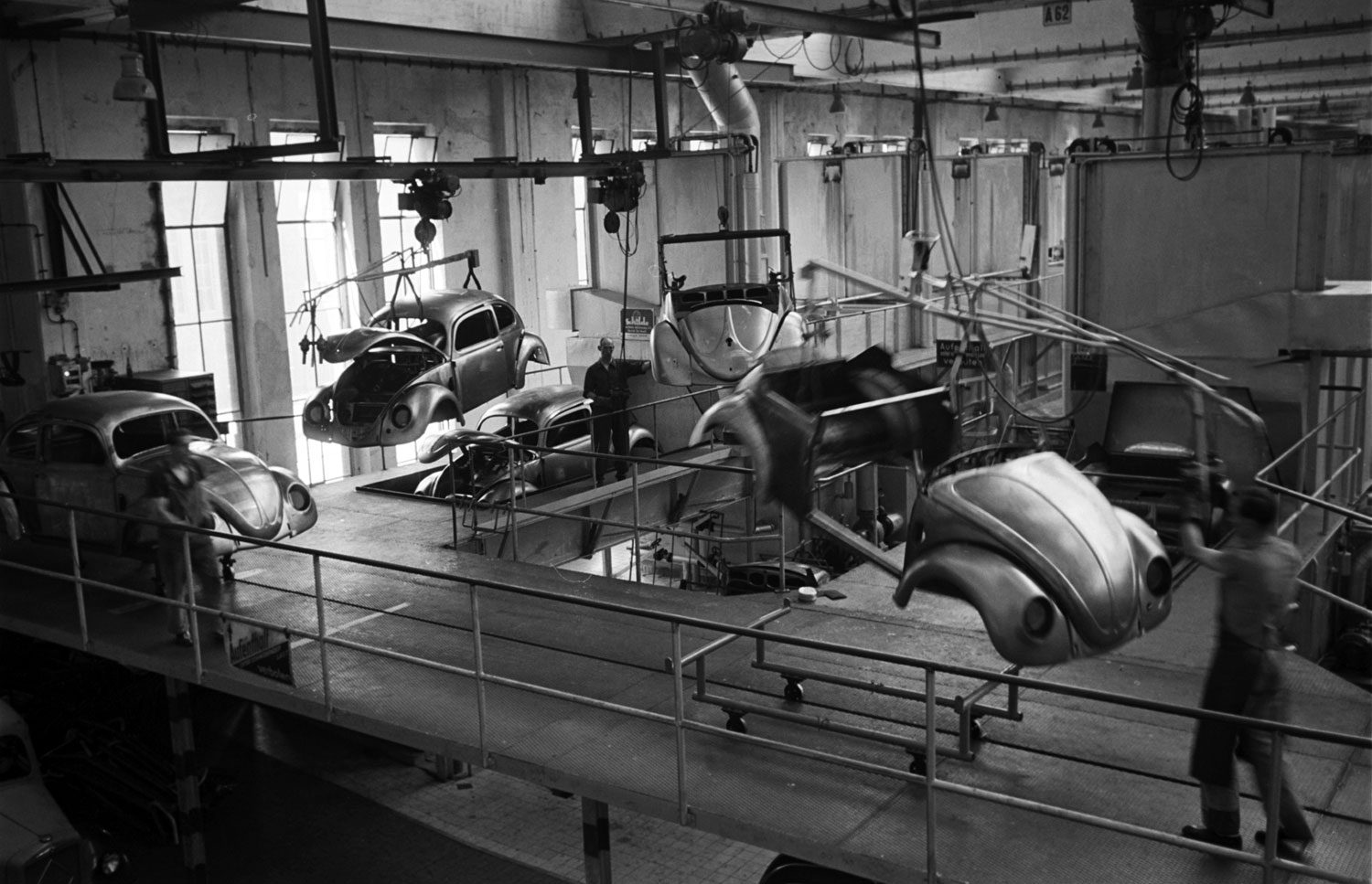
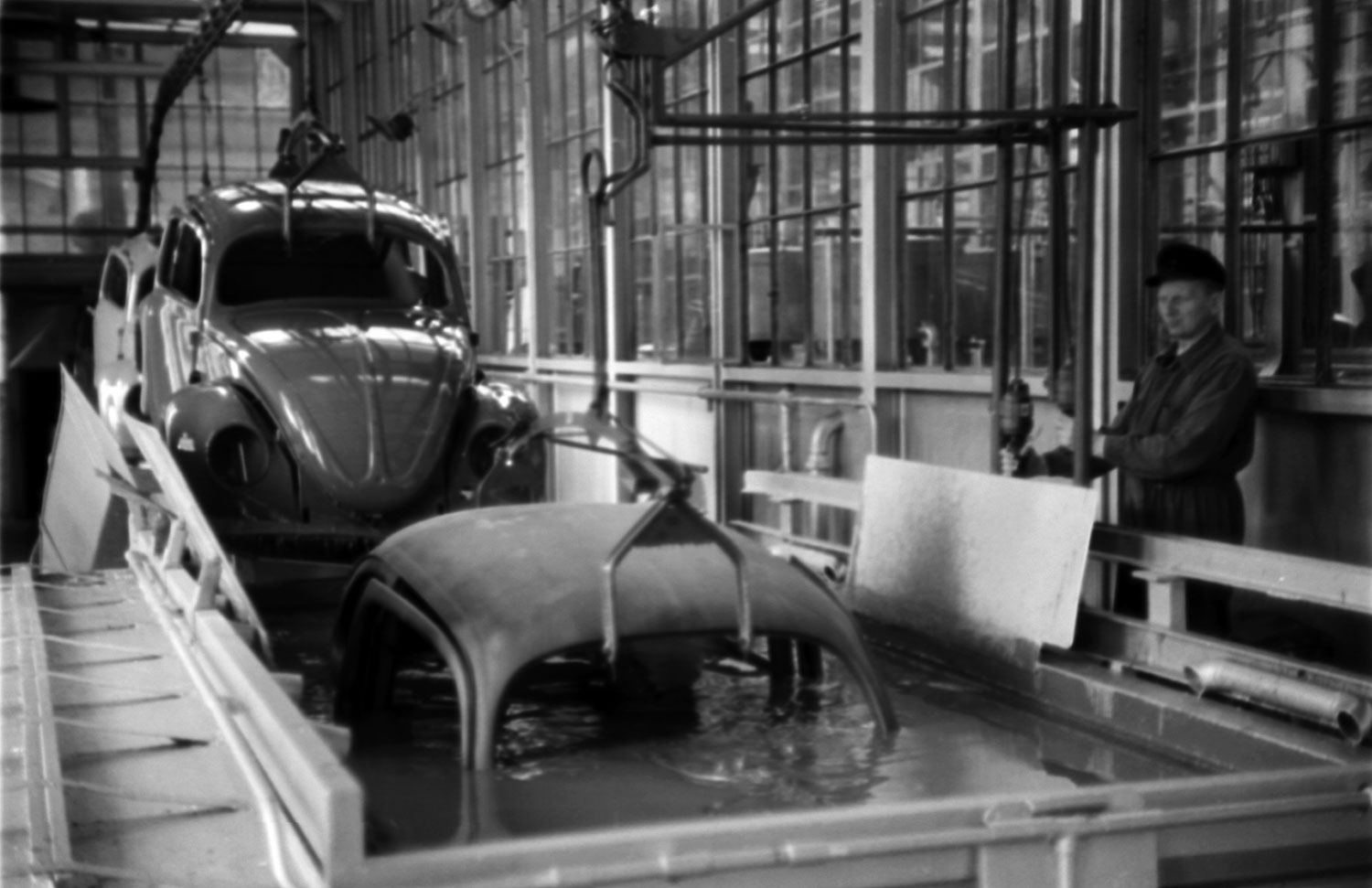
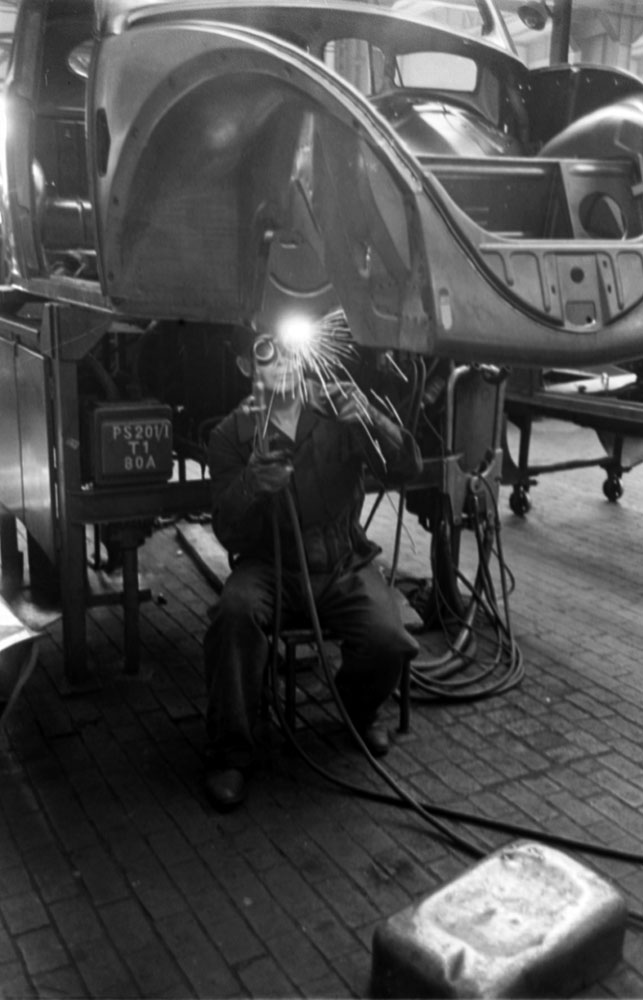
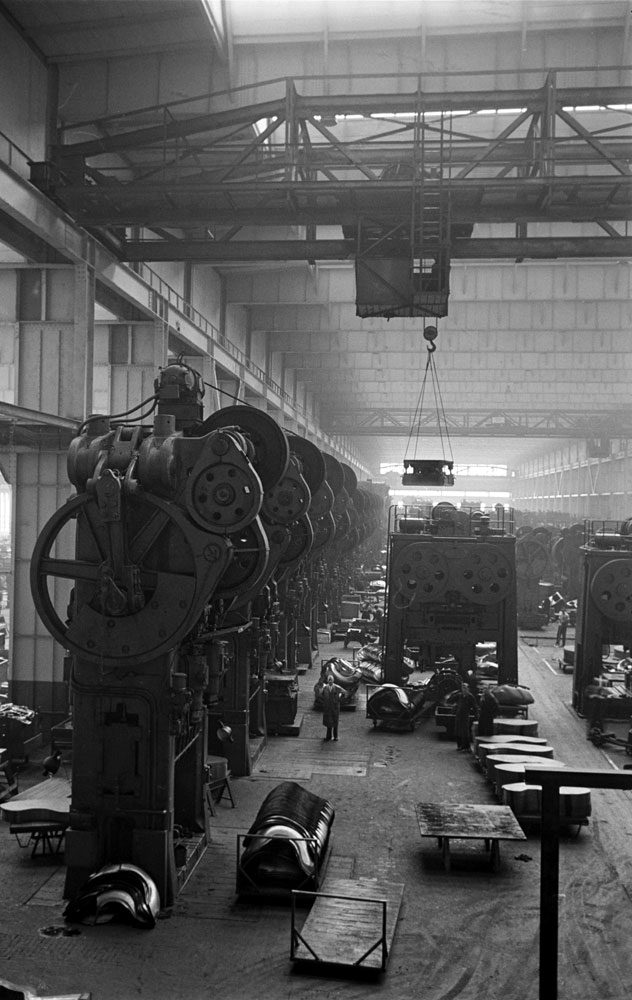
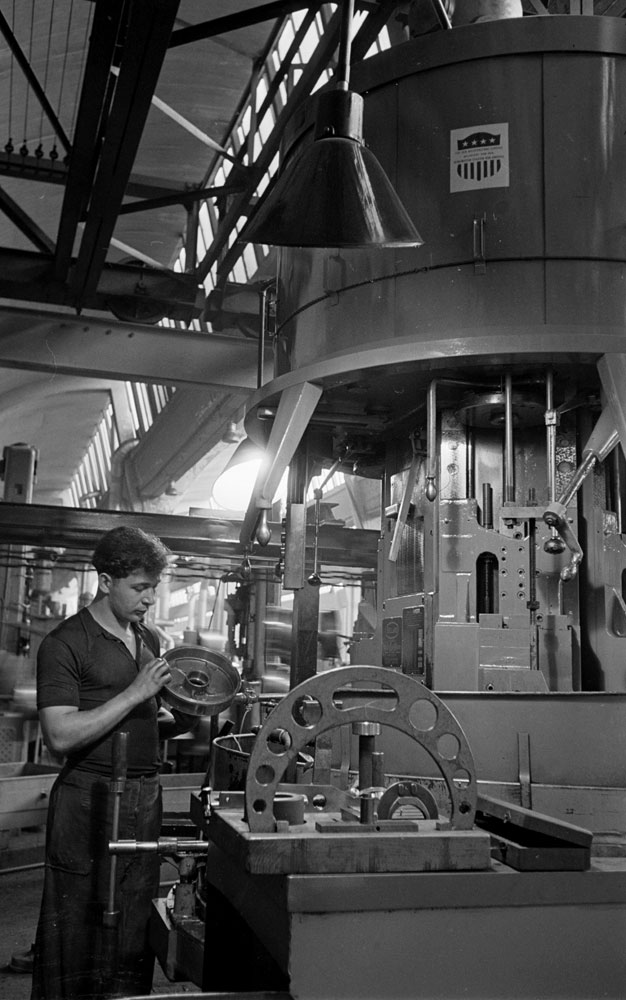
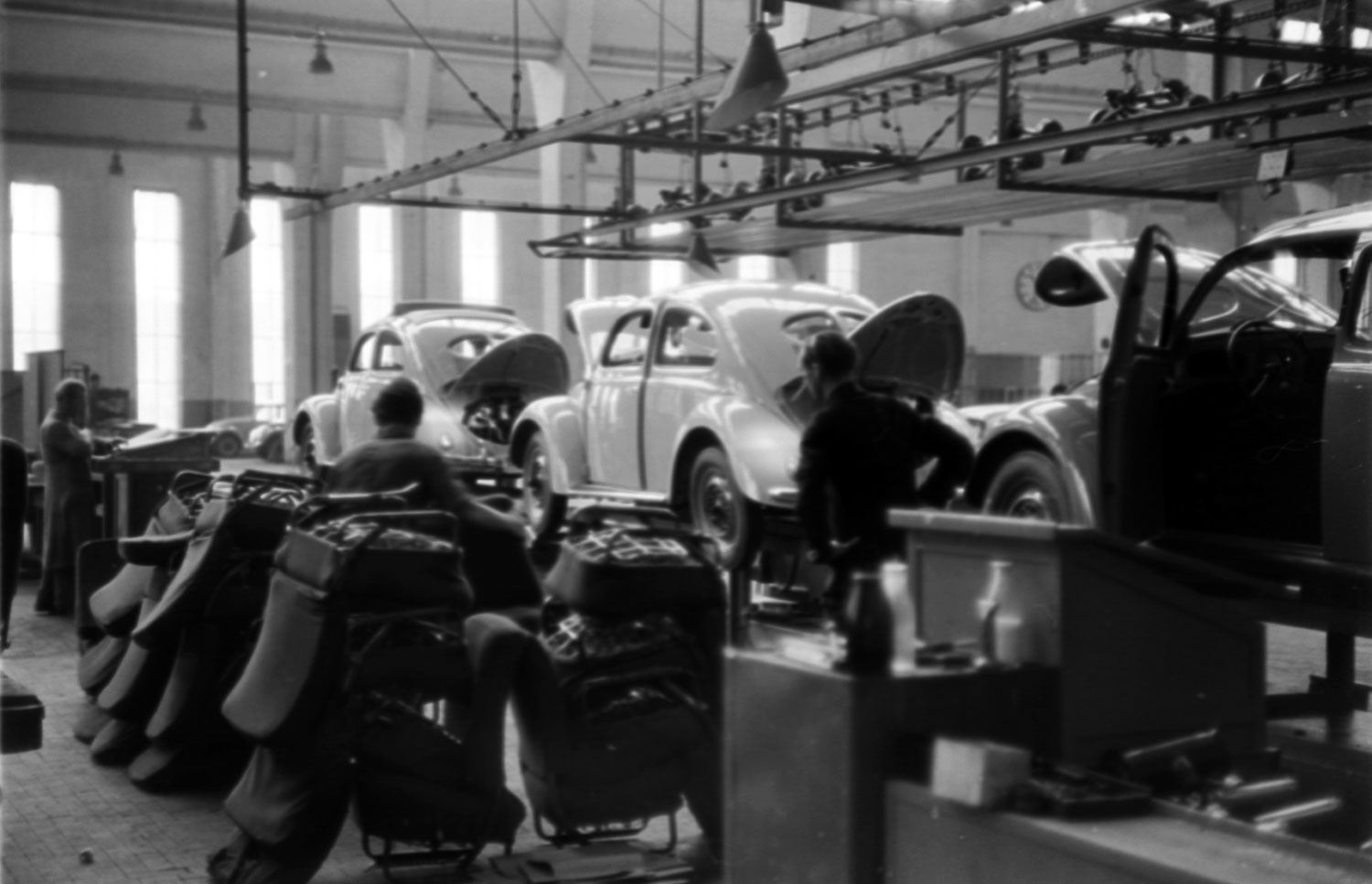
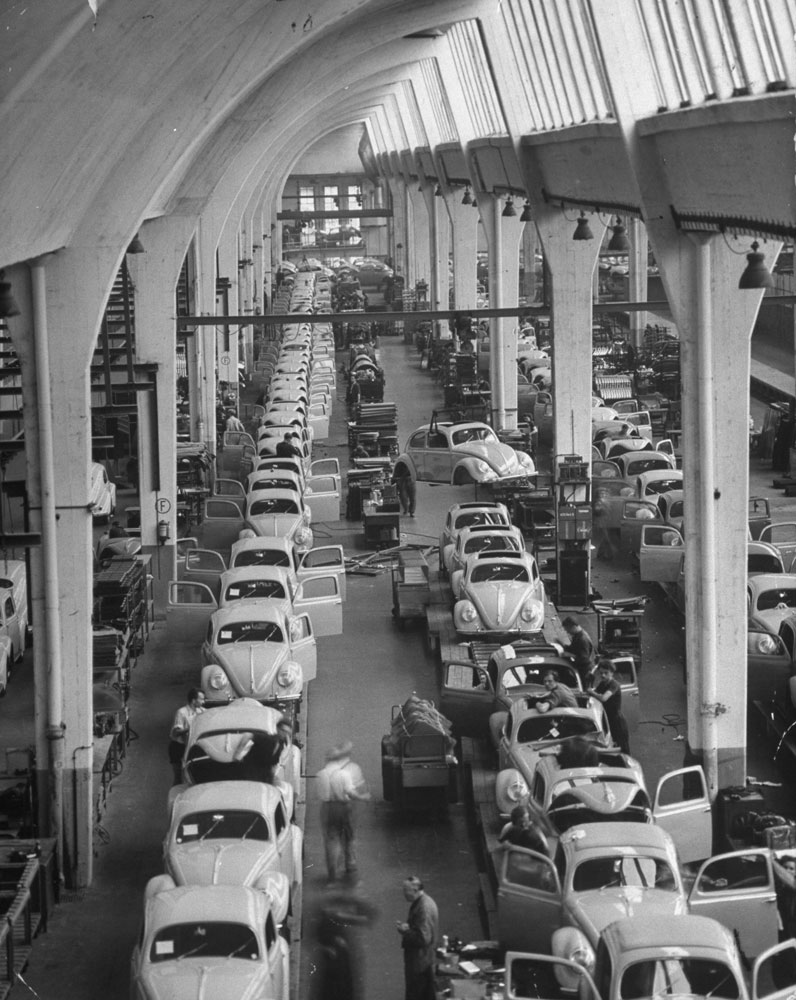
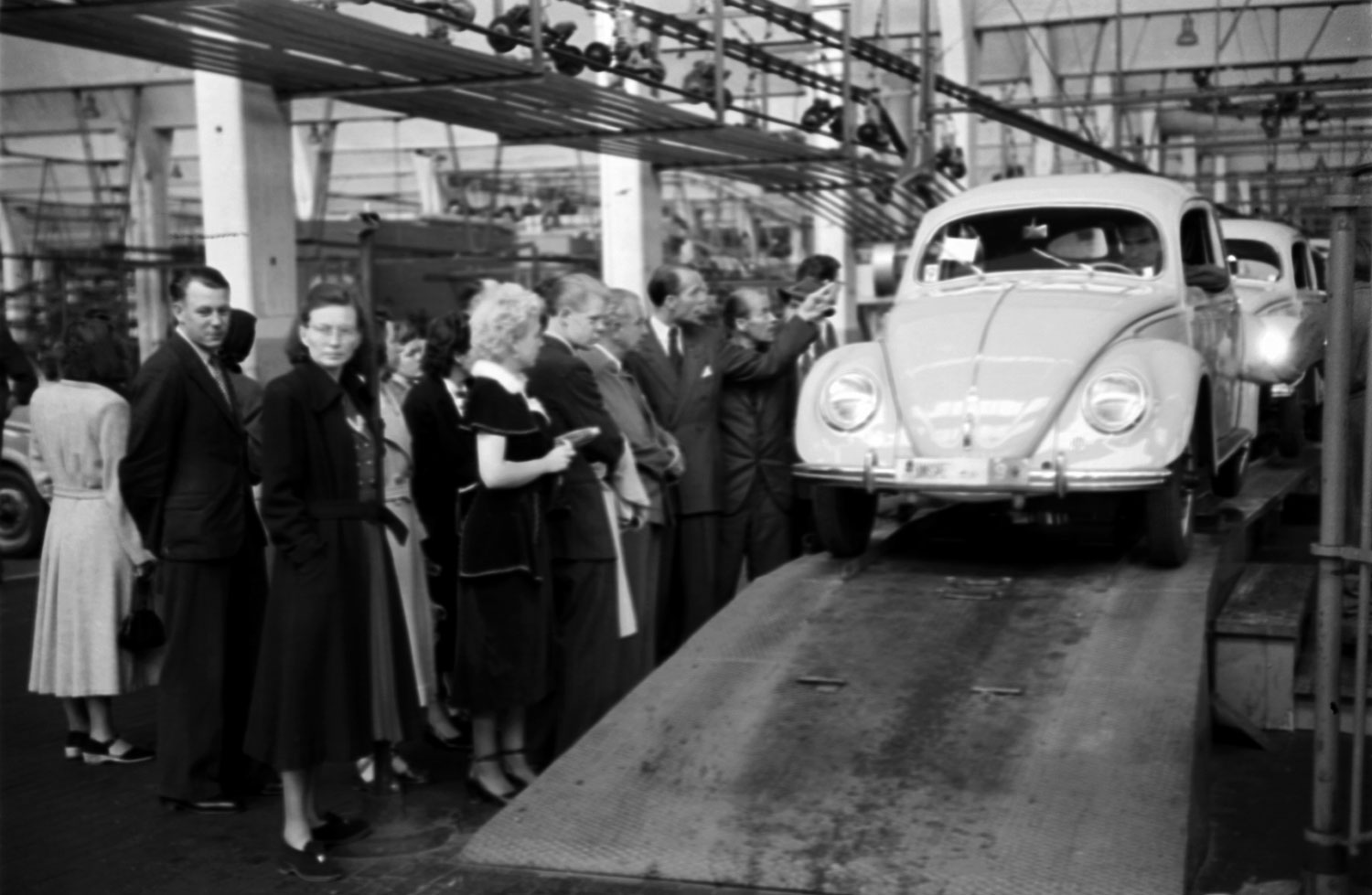
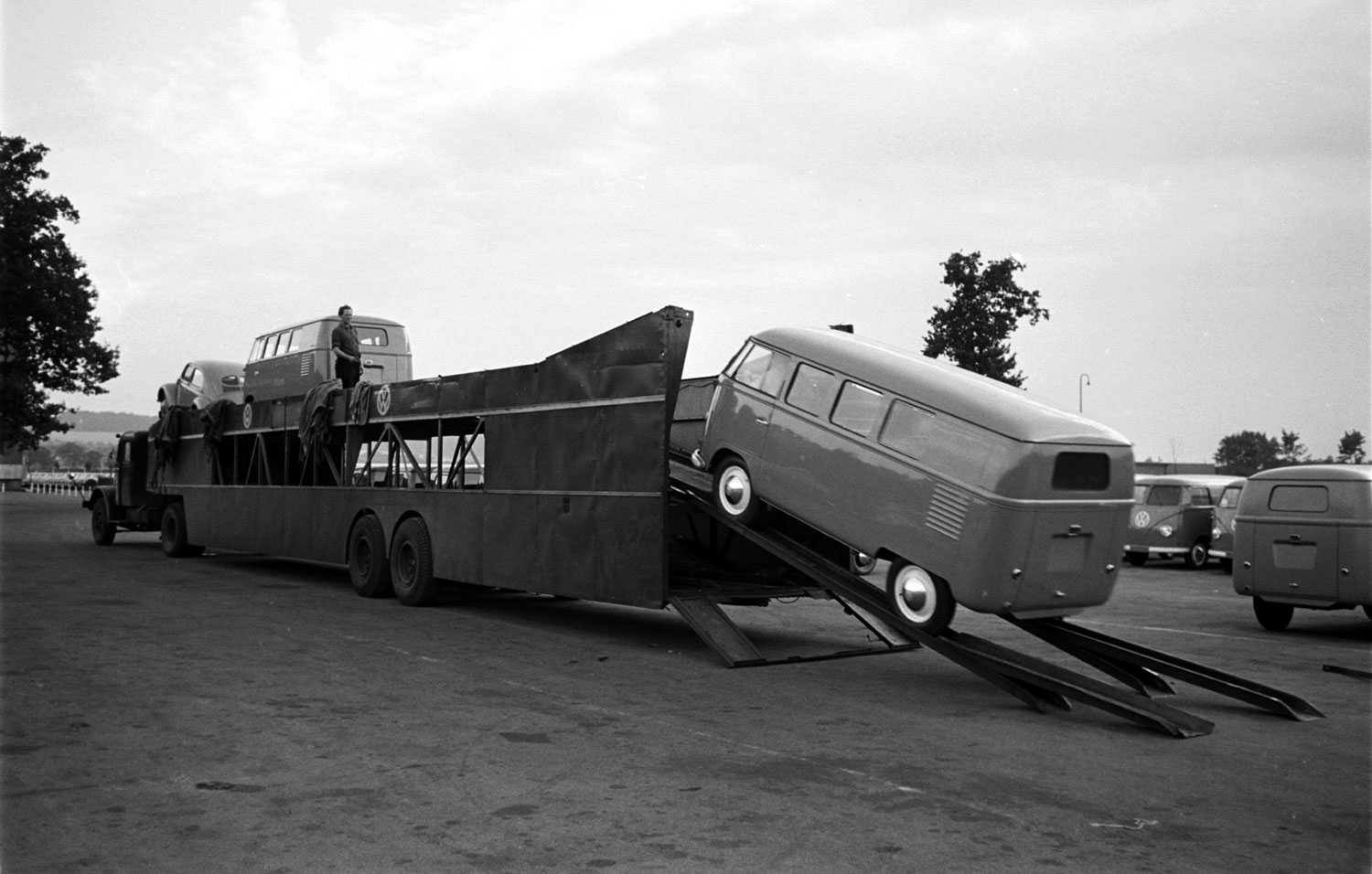
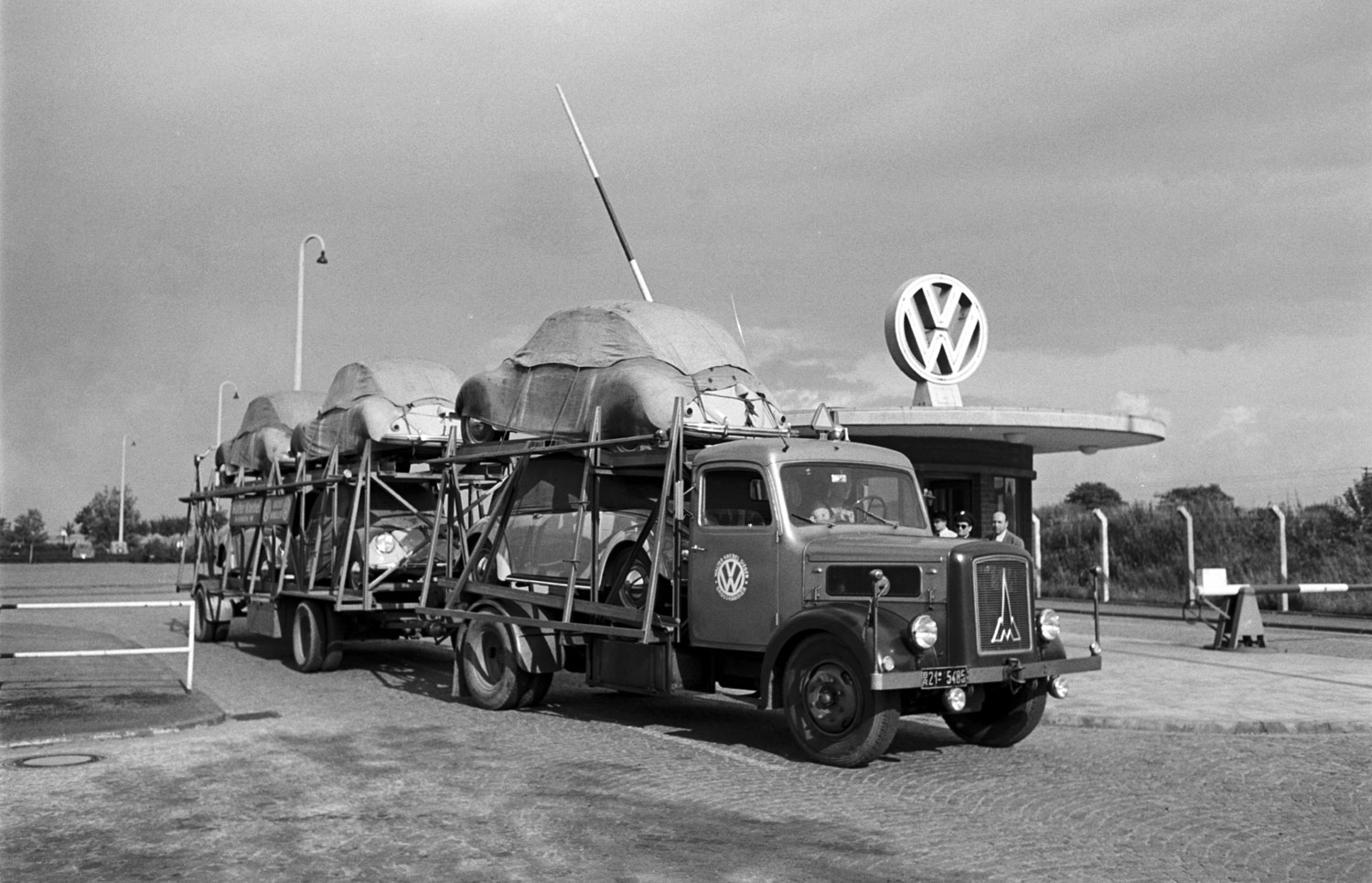
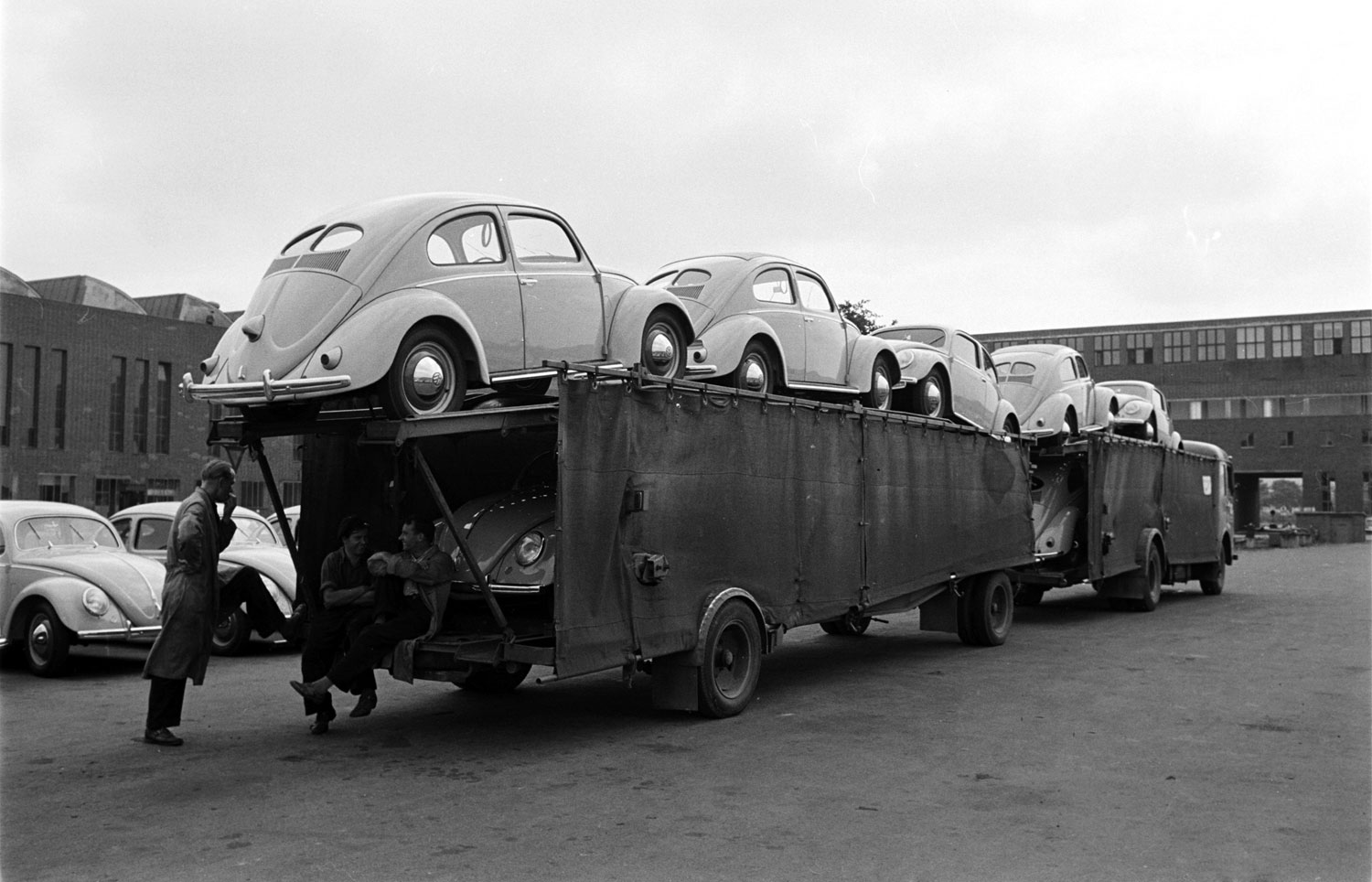
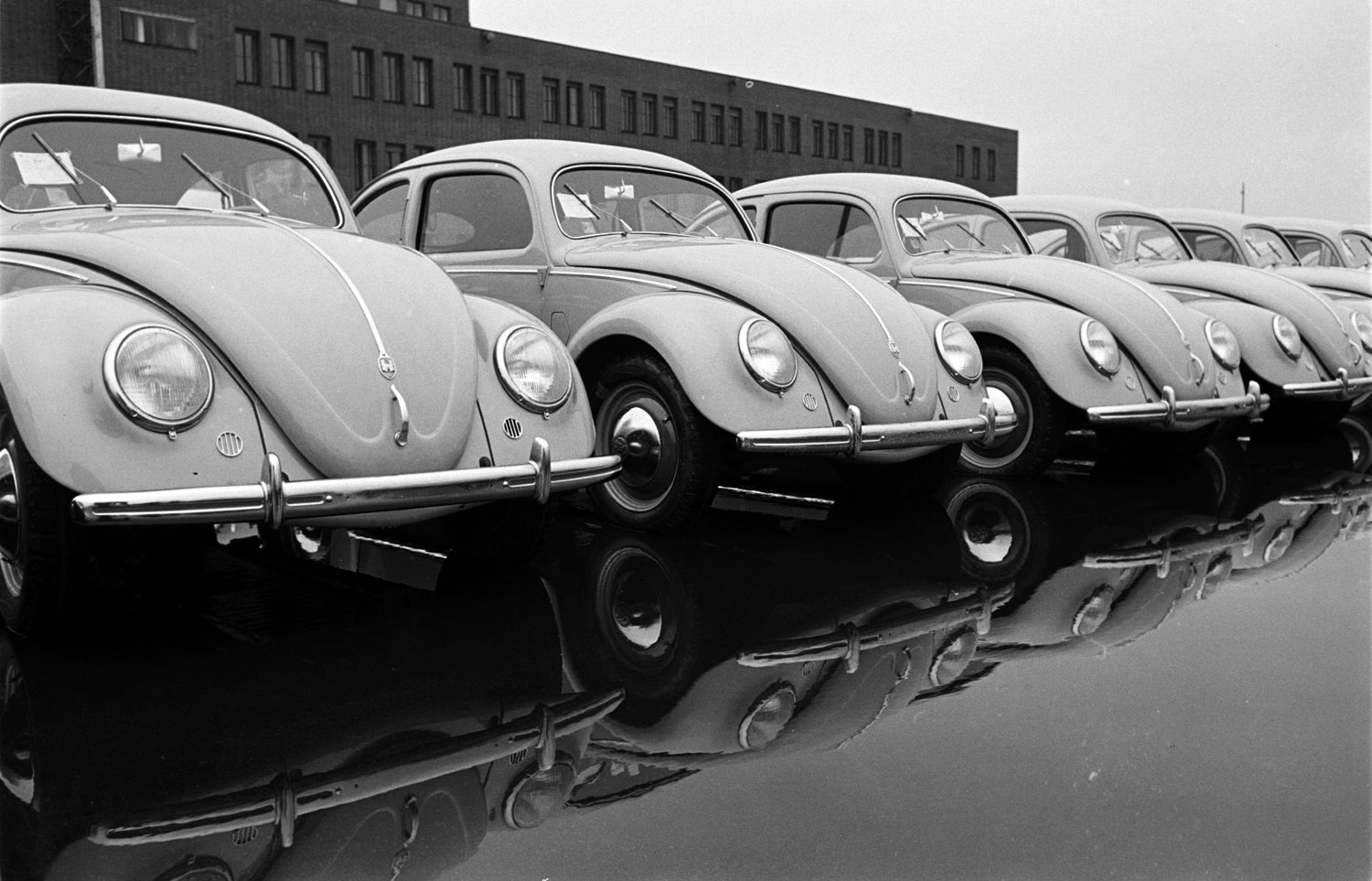
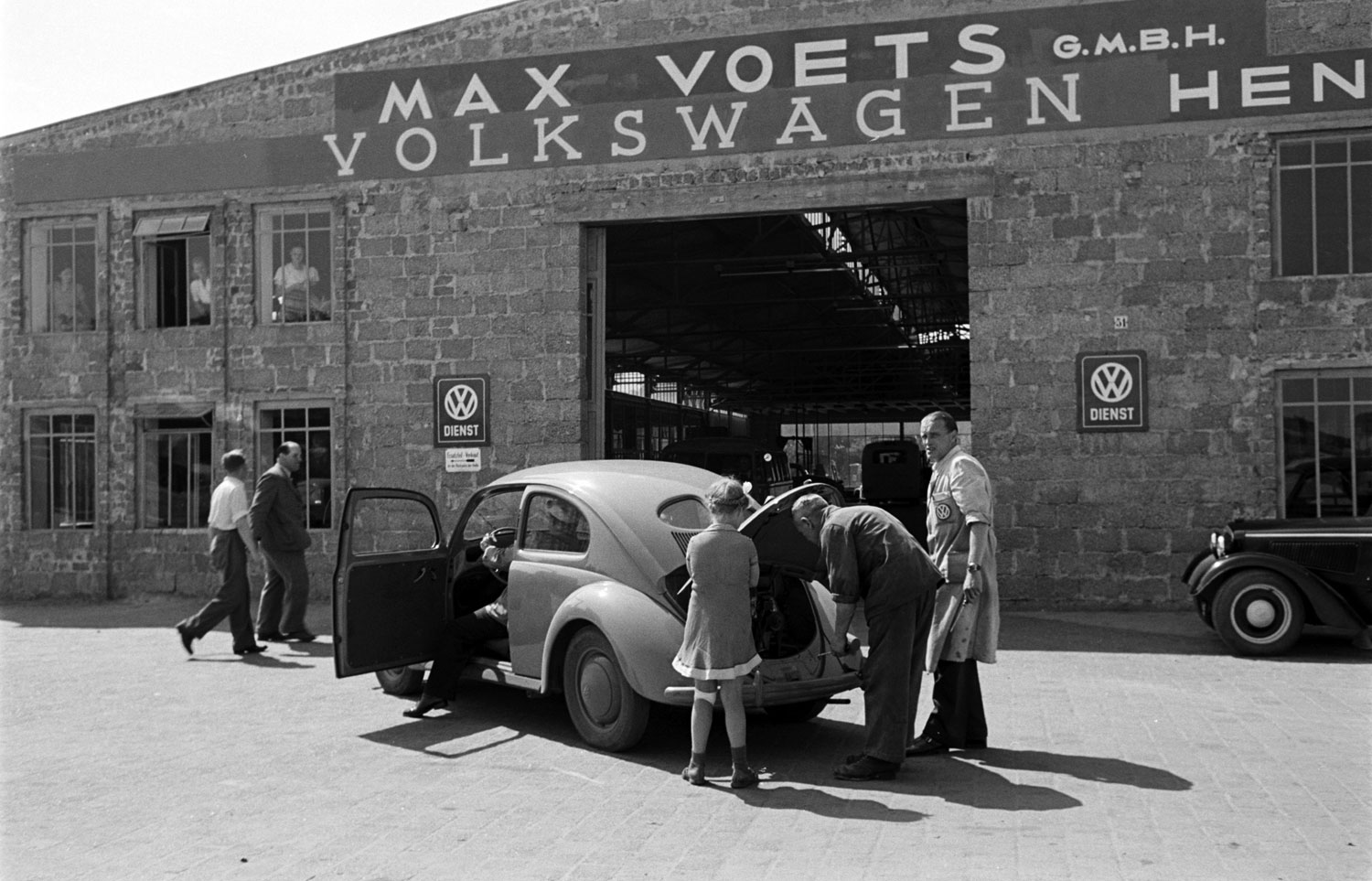
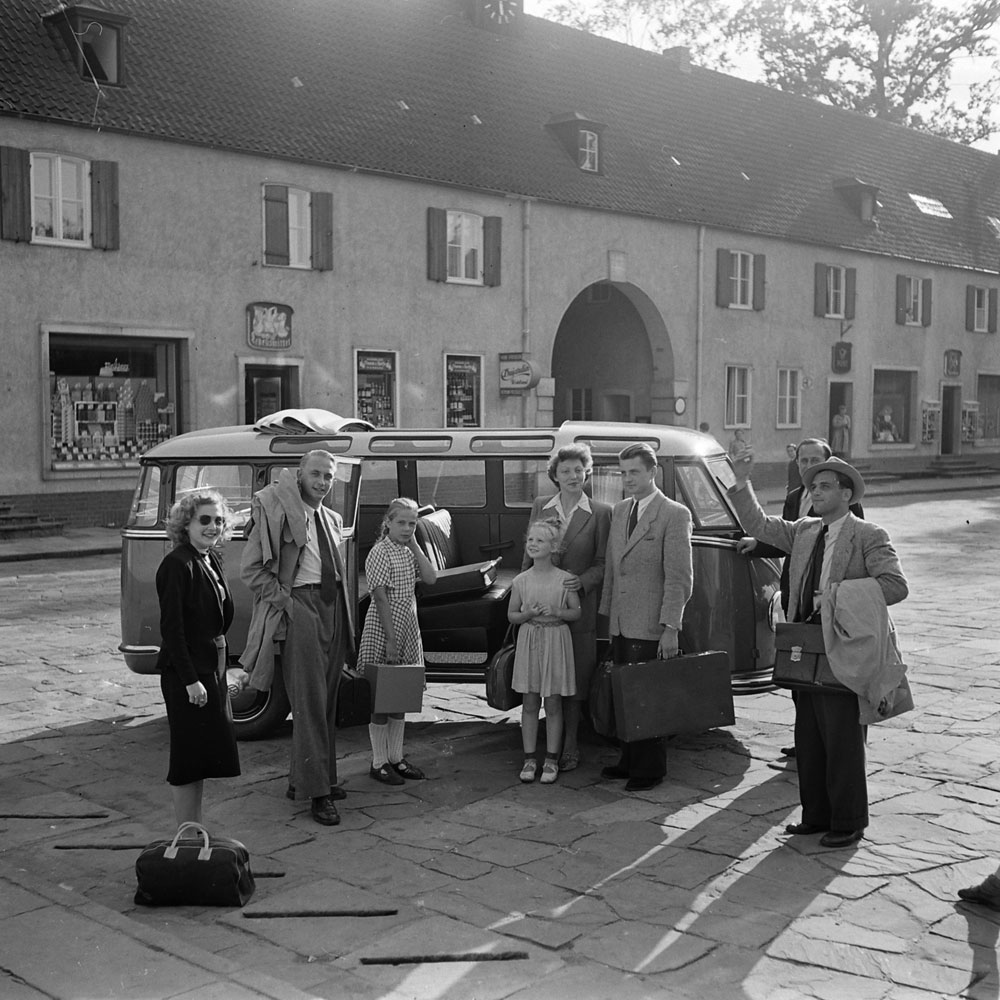
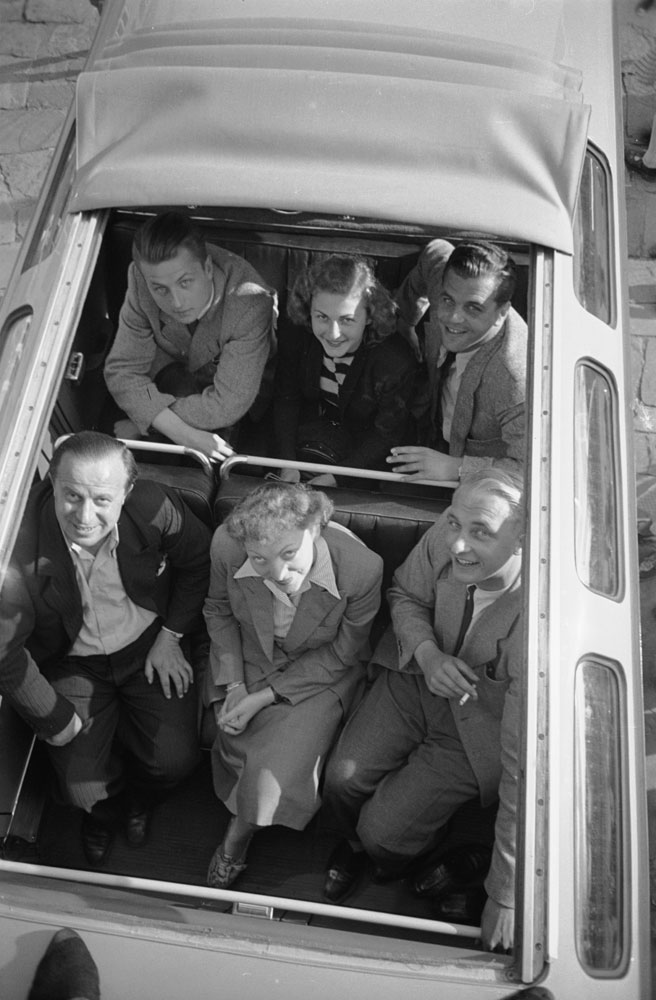
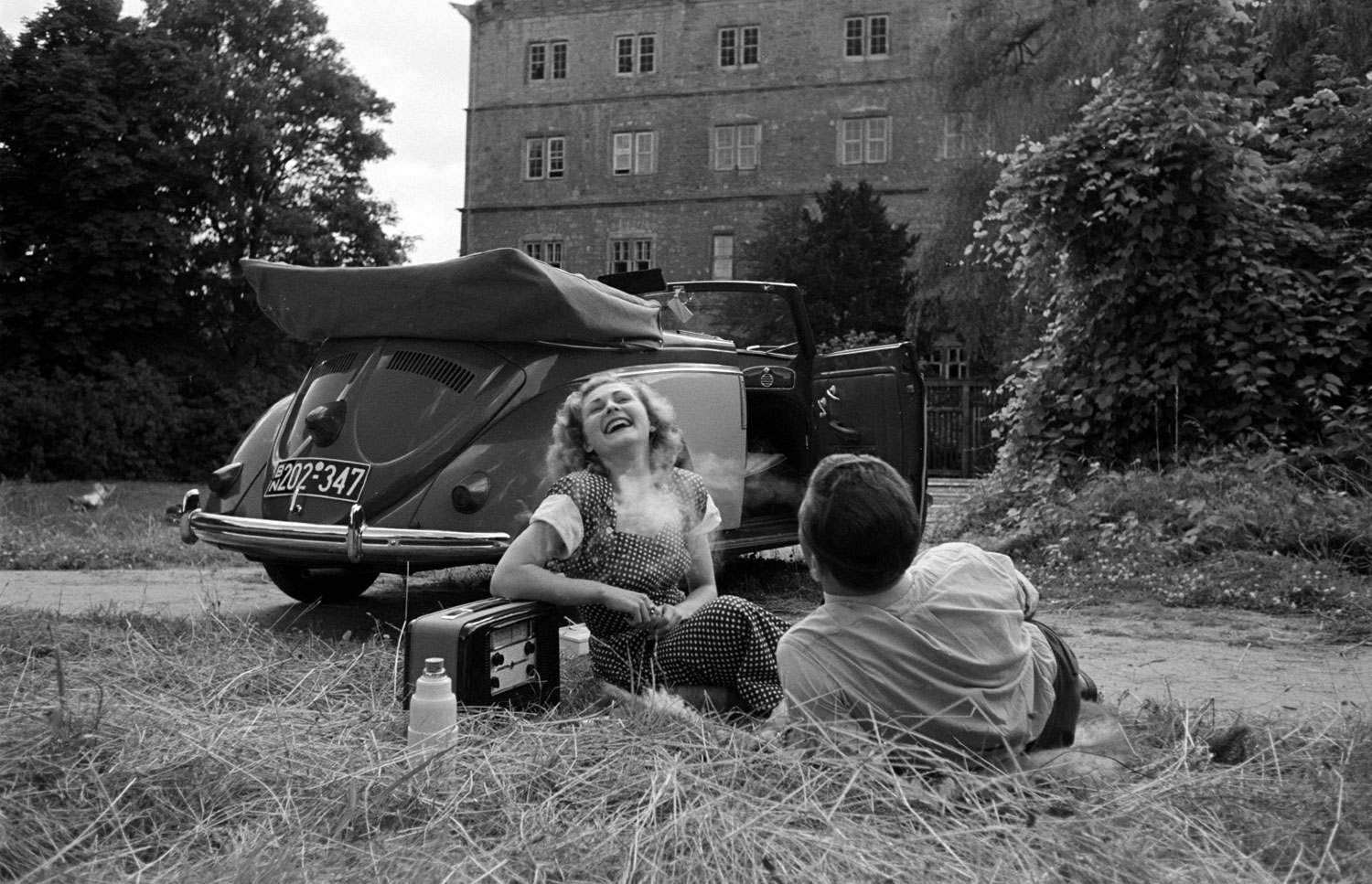
More Must-Reads from TIME
- Cybersecurity Experts Are Sounding the Alarm on DOGE
- Meet the 2025 Women of the Year
- The Harsh Truth About Disability Inclusion
- Why Do More Young Adults Have Cancer?
- Colman Domingo Leads With Radical Love
- How to Get Better at Doing Things Alone
- Michelle Zauner Stares Down the Darkness
Contact us at letters@time.com